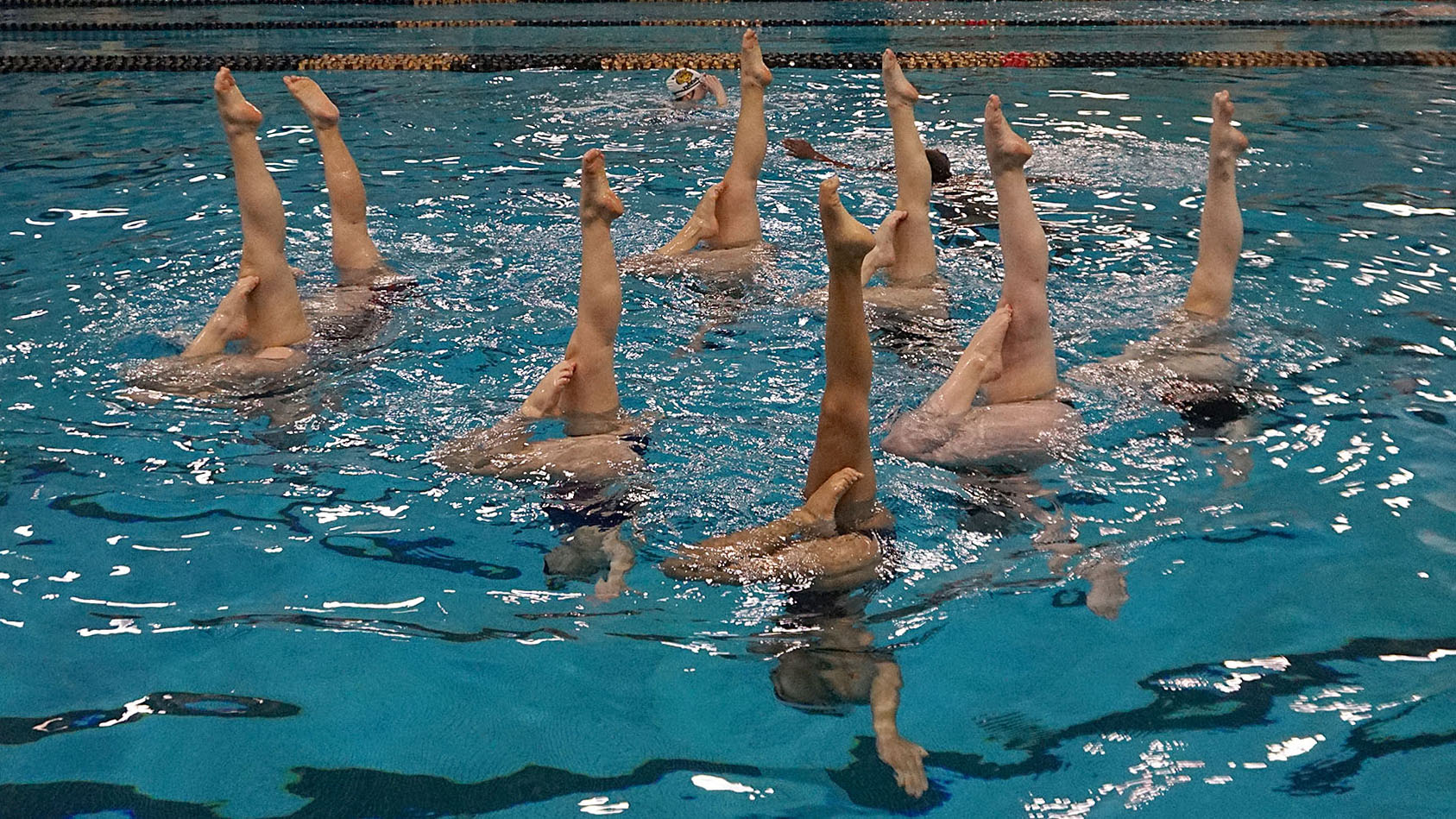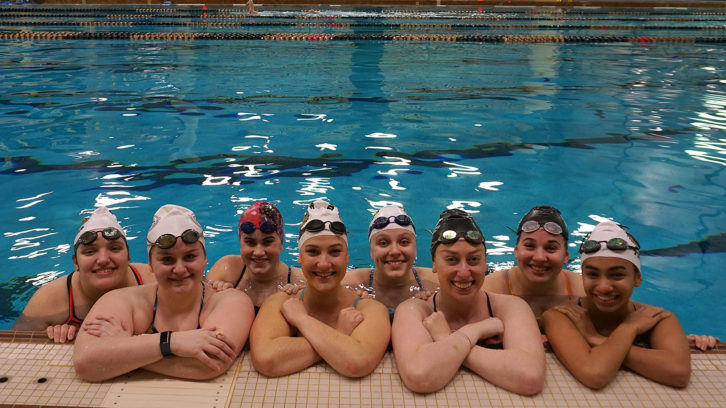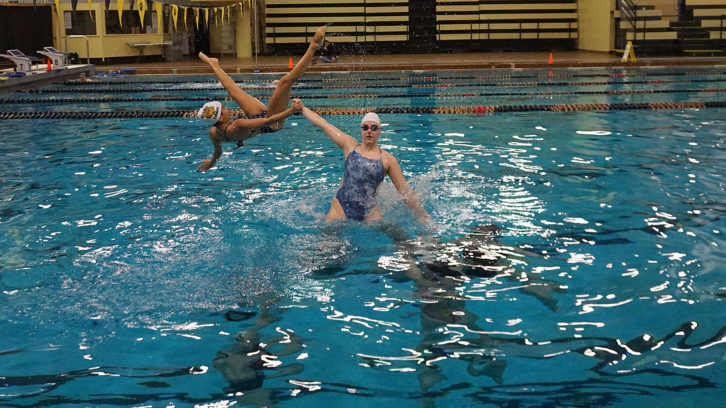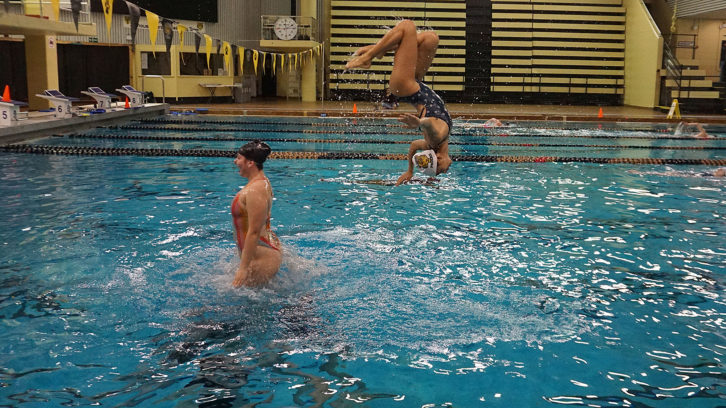Halifax synchronized swimming team heading to national competition in B.C.
The university's synchronized swimming team is growing — but the sport as a whole is still flying under the radar

caption
Dalhousie's synchronized swimming team holds a bent-knee position.Dalhousie University’s synchronized swimming team is heading across the country next week to represent Atlantic Canada at the Canadian University Artistic Swimming League (CUASL) national competition.
It is currently the only active university team in Atlantic Canada.
More widely known as synchronized swimming, the sport underwent a name change to artistic swimming in 2017.
The University of British Columbia will host the national competition from Feb. 14 to 16.
It’s only the second year Dalhousie has had an artistic swimming team, but in just a little more than two years, the team has more than doubled in size.
“Last year we had a team of seven and our coach. This year we have over 20 people who are in the club,” said Caitlin Schropp, president of Dalhousie’s artistic swimming club.
Schropp said the university has both an experienced and a novice team in this year’s competition.

caption
Dalhousie’s experienced synchronized swimming team at practice.Despite the club’s growth over the past two years, Schropp said artistic swimming tends to get less visibility than a lot of other university sports.
She suspects one reason for this is because it’s female-dominated.
Pamela Kidney, executive director of Synchro Nova Scotia, agrees the lack of exposure could be a result of gender.
“It might not be intentional, but I do think it’s because it’s a female sport,” said Kidney. “Certainly at the university level, male sports that are subsidiaries of professional sports always get first billing.”
Kidney said there’s a common misconception that synchro is easier than it is because the swimmers make it look easy.

caption
The team practices one of the highlights in their routine.“The other thing that surprises people is when I say I think we’re up there with football for concussions,” said Kidney. “But if you show them some of the compilations of highlight clips and when you see how high they throw them and where they land, it’s easier to understand that.”
Kidney said the perspective of most people tends to be: “It’s a female sport. It’s pretty. You wear makeup. How hard can it be?”
Schropp explained that artistic swimming actually takes a lot of grit.
“Inherently you try and make it look effortless and beautiful, so you’re not seeing the grittiness of it,” Schropp said. “Whereas in other sports, like football, grittiness is on display and it’s a part of it.”
It’s Wednesday evening, just one week before the competition, and there is a nervous energy as the team prepares to do a run-through of their full routine. Although the routine is only four minutes long, Schropp said it feels like running a marathon.

caption
Kidney compared artistic swimming to cheerleading, except there’s no air or anything to push off of.“Artistic swimming is a full body sport, there is never a moment in the routine when you are still,” said Catherine Barrett, who is competing on the Canadian Olympic artistic swimming team in Tokyo this summer.
Barrett said training requires an immense amount of time in the water to ensure everyone’s movements are as precise and identical as possible.
“We often compare our routine to a three to four-minute sprint, but over half of that is without oxygen,” said Barrett.
Barrett is currently training 40 to 50 hours a week preparing for the Olympics in July.
She began her artistic swimming career in Newfoundland before moving to Ontario in 2014.
“It is difficult to attract up and coming coaches to come out East since the community is small and the cities are less well known to those coming in from outside of Canada,” said Barrett. “Oftentimes Canadians themselves are not familiar with what the East Coast has to offer.”
This may change next year when hundreds of university-level swimmers and coaches travel east to compete at the 2021 CUASL nationals, which will be hosted by Dalhousie University.
This will be the first time Halifax will host the national CUASL competition.
About the author
Ellen Riopelle
Ellen is a journalist currently living in Halifax. She has a penchant for travelling, hammocks, craft beer and good stories.
